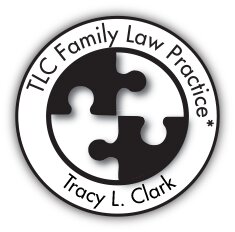Best Military Divorce Lawyers in Prince George
Share your needs with us, get contacted by law firms.
Free. Takes 2 min.
Free Guide to Hiring a Family Lawyer
List of the best lawyers in Prince George, Canada
About Military Divorce Law in Prince George, Canada
Military divorce law in Prince George, Canada, caters to the unique considerations that arise when one or both spouses are active military members or veterans. This sector of family law addresses the specific challenges stemming from the demands of military life, such as deployment and military pensions. Prince George adheres to Canadian federal laws where matters like child support and spousal support are concerned, while specific stipulations about dividing military pensions and custody issues are also taken into account.
Why You May Need a Lawyer
Military divorce cases often involve complex legal and logistical issues that can be difficult to navigate without professional guidance. Individuals may need a lawyer in situations such as:
- Understanding the division of military pensions and benefits.
- Navigating custody arrangements during deployment or relocation.
- Addressing spousal or child support obligations which might be affected by military income.
- Ensuring compliance with both federal and local legal requirements.
- Interpreting and applying the Family Law Act alongside military-specific regulations.
Local Laws Overview
Military divorce in Prince George is impacted by local and federal laws concerning family matters, which include:
- Division of Pension Benefits: The division of Canadian Armed Forces pensions is an important aspect of divorce. The Pension Benefits Division Act governs how these are split between spouses.
- The Family Law Act: As per British Columbia's Family Law Act, issues like property division, spousal support, and child custody and support are addressed. The specifics of the Act are applied alongside federal regulations impacting military personnel.
- Deployment Considerations: Courts take into consideration the unique situations caused by deployment, which may affect custody and visitation rights.
Frequently Asked Questions
What is the main difference between military and civilian divorce?
Military divorce involves additional regulations related to military benefits, spousal support considering military pay, and specific rules regarding the division of military pensions.
Can a military spouse get more than half of the military member’s pension?
The division of the pension is guided by federal law under the Pension Benefits Division Act, which typically allows for a maximum of 50% of the member's pension to be awarded to the non-military spouse.
How does deployment affect custody decisions?
Courts consider the effects of deployment on custody and visitation, often resulting in adjustments to parenting time that reflect the realities of military service.
How are spousal and child support calculated for military families?
Spousal and child support calculations consider the total compensation package of the military member, including base pay and allowances.
What role does the Family Law Act play in military divorces?
The Family Law Act governs matters related to family property, support, and custody. It works in tandem with military-specific rules for addressing unique aspects of military divorce.
What happens if one spouse moves out of the province or country?
Military assignments can require relocation. Custody agreements and support orders are made with potential relocations in mind, requiring legal support for adjustments.
How long does the military divorce process typically take?
The duration can vary widely depending on the complexity, especially if there are contested issues concerning custody, support, and the division of pension benefits.
Can both spouses keep military health benefits after divorce?
Non-military spouses lose military health benefits upon divorce, though there are some exceptions for former spouses who fit certain criteria under federal regulations.
Is mediation a viable option for military divorcees in Prince George?
Yes, mediation is often encouraged as it allows couples to reach amicable agreements without undergoing a lengthy court process, which can be beneficial in managing disputes related to military divorce.
What resources are available for support during a military divorce?
Various resources, including Military Family Resource Centers and legal aid from both civilian and military sources, can provide needed support during a military divorce.
Additional Resources
Additional support and resources can be accessed through:
- Military Family Resource Centres (MFRCs): Provide support services and programs aimed at helping military families, including those going through a divorce.
- Veterans Affairs Canada: Offers guidance and resources for divorced military personnel and their families.
- Legal Aid BC: Provides legal advice and resources for individuals who qualify for legal assistance.
Next Steps
If you are considering or are in the process of a military divorce in Prince George, it is crucial to consult with a lawyer experienced in military law. Begin by:
- Gathering all relevant documents, including financial statements and military orders.
- Contacting a local family law attorney with expertise in military divorce.
- Exploring local resources like MFRCs or legal aid clinics for support services.
- Ensuring you understand your rights and obligations under both military and civilian law.
Lawzana helps you find the best lawyers and law firms in Prince George through a curated and pre-screened list of qualified legal professionals. Our platform offers rankings and detailed profiles of attorneys and law firms, allowing you to compare based on practice areas, including Military Divorce, experience, and client feedback.
Each profile includes a description of the firm's areas of practice, client reviews, team members and partners, year of establishment, spoken languages, office locations, contact information, social media presence, and any published articles or resources. Most firms on our platform speak English and are experienced in both local and international legal matters.
Get a quote from top-rated law firms in Prince George, Canada — quickly, securely, and without unnecessary hassle.
Disclaimer:
The information provided on this page is for general informational purposes only and does not constitute legal advice. While we strive to ensure the accuracy and relevance of the content, legal information may change over time, and interpretations of the law can vary. You should always consult with a qualified legal professional for advice specific to your situation.
We disclaim all liability for actions taken or not taken based on the content of this page. If you believe any information is incorrect or outdated, please contact us, and we will review and update it where appropriate.









